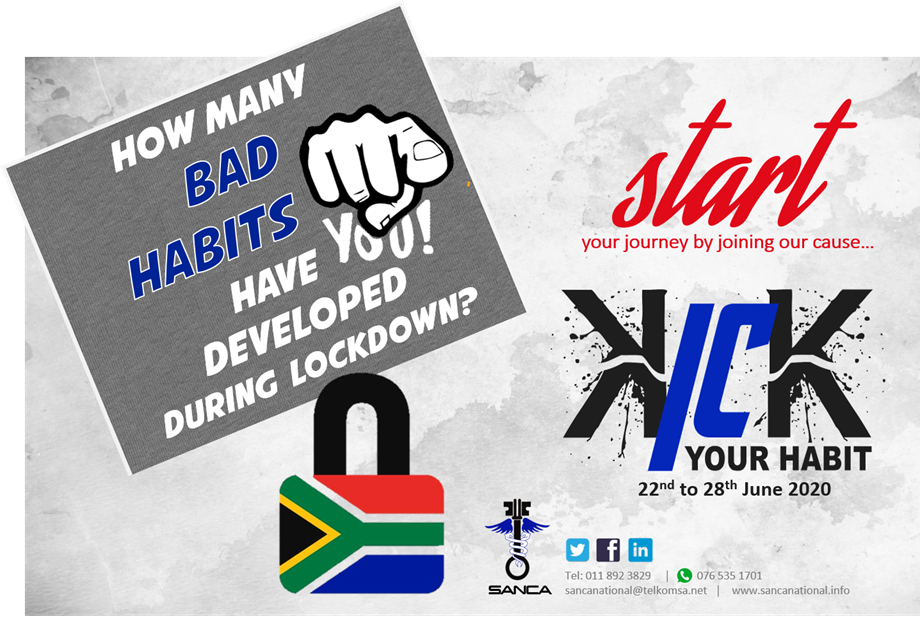Introduction
The South African National Council on Alcoholism and Drug Dependence (SANCA) is a non-profit organisation that
is committed to the treatment, prevention and awareness of drug dependence within all nine provinces of South
Africa. With more than 60 years’ experience in this field, it is one of the leading organisations fighting the ever
increasing substance use and abuse rates within the country.With 30 clinics and 98 service points throughout the
country, SANCA is also one of the biggest non-profit organisations in South Africa,with all of its branches affiliated to
the SANCANationalDirectorate based in Johannesburg,Gauteng.
Purpose
Substance dependency statistics show that drug consumption (cannabis, cocaine, and Tik) in South Africa is twice
the global average and second to none in Africa (UN World Drug Report, 2014). The average age of drug
dependency in South Africa is 12 years and decreasing. South Africa is among the top 10 narcotics and alcohol
abusers in the world. For every 100 people, 15 have a drug problem and for every 100 Rands in circulation, 25
Rands are linked to the substance abuse problem (Christian Addiction Support, 2016). Drug and Alcohol
dependency is destabilising the fabric of South African society and is often linked to other social ills (such as
violent crime, gender-based violence, child abuse, and the ever increasing HIV/AIDS incidence rates). As of 2017,
it as reported that South Africa has the highest prevalence of Foeatal Alcohol Syndrome Disorder (FASD) in the
world, with a prevalence rate which is 14 times more than the global averageThe South African youth are
particularly vulnerable to the experimentation and long-term use of substances (whether it be alcohol, illicit
drugs, or even over-the-counter and prescription medication). The cost to the country is measured not merely in
Rands, but also in loss of creativity, innovation, artistry, talent, to name a few.
Dr Paul Seale, Mercer University School of Medicine, USA, researched drug use in South Africa and found that
13.3% of the South African population had used drugs during their lifetime, resulting in substance abuse in 3.9%
of people and dependence in 0.6% of the population. There were high levels of inhalant use among youth, he
said. Cannabis (dagga) was the drug of choice among those undergoing substance abuse treatment, and
methamphetamine (tik) abuse was common in the Western Cape and Eastern Cape. There was also a noticeable
increase in the use of over-the-counter and prescription medicines, especially by young people, which includes
the highest use of methaqualone (mandrax/Quaalude) in the world.
As endemic as the problem of substance abuse within the country is, many South Africans know very little about
the problem and how it might be affecting them personally. Secondly, many people are unaware of the
difficulties faced by substance dependents when first entering treatment and the long-term fight that will be
faced over the years after treatment. The prohibition of the sale of alcohol during levels 5 and 4 of the lock down
during the Covid-19 Pandemic further reinforced that South Africans have a problematic relationship with alcohol
use. The desperation was seen in the making of home brew concoctions, illegal trade in alcohol and robberies of
liquor stores. Families that were now isolated could now experience the impact of addiction . The lifting of the
ban further during level 3 of lock down raised concerns about the increase in crime and gender-based violence.
Years of believing that the addict has a choice every time they use has led to the idea that active addiction is fuelled
by the irrational and selfish behaviours of the individual themselves . However , addiction is far more complex that
this simple explanation. The drive to continue using ismore often fuelled by the psychological and physical needs of
the dependent individual and treatment is oftenmore complex that just stopping.
For more information please visit our website
www.sancalimpopo.co.za or email
info@sancalimpopo.co.za
call 0152953700 or helpline/WhatsApp
0764825898


